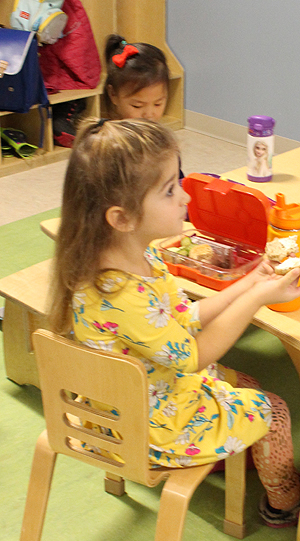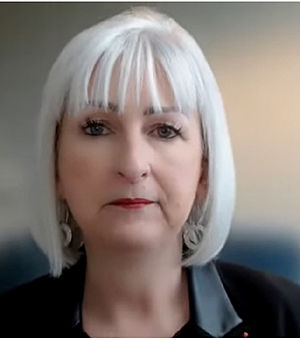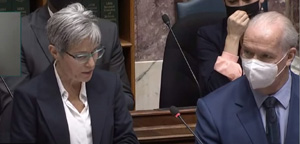
Tuesday February 22, 2022 | VICTORIA, BC [Last update 2:10 pm February 23, 2022]
by Mary P Brooke | Island Social Trends
The B.C. government unveiled its 2022 budget today, delivered by Finance Minister Selina Robinson starting at 1:30 p.m. It was broadcasst live on YouTube and by some TV stations.
The challenges of climate change and pandemic economic recovery are the main focus of the budget. A prelude to the budget called StrongerBC was delivered last week by Premier John Horgan together with Ravi Kahlon, Minister of Jobs, Economic Recovery and Innovation.
The introduction to the budget by Minister Robinson included: “Moving forward by holding steady” and “we are stronger together”, and saying that the BC Government has responded to conditions that presented themselves. She mentioned that 150,000 new jobs were created in BC last year, and that BC has the lowest unemployment rate in the country as well as the highest minimum wage which is tied to future increases in the rate of inflation.
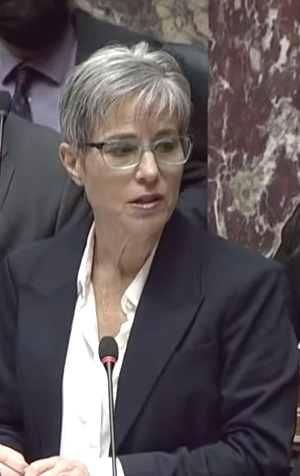
Robinson told a pre-budget news conference on Family Day Monday that the realities of climate change hit the province over the past year with deadly heat waves, wildfires and storms that caused major flooding and infrastructure damage across southern BC. Expansion of the BC Wildfire Service to a year-round operation is part of BC’s new budget direction.
Today she highlighted that BC has a more inclusive economy. That includes Indigenous workers have access to more jobs. There are mid-career transition supports.
“A strong economy creates meaningful opportunities for everyone,” said Robinson. She highlighted three current emergencies that British Columbians are dealing with including extreme weather, the overdose crisis, and COVID-19.
Deficit:
The Finance Ministry says that B.C. is in a strong economic position for recovery from the COVID-19 pandemic and recent climate-related disasters.
Today’s budget documents outline that the province’s economy expanded by an estimated 5.0% in 2021 and is forecast to expand by 4.0% in 2022 and 2.5% in 2023.
Budget 2022’s three-year fiscal plan presents declining deficits, with a projected $5.5-billion deficit in 2022-23 declining to $3.2 billion in 2024-25.
Affordability theme:
The over-arching theme of the Horgan BC Government has been trying to address everyday affordability for British Columbians.
Chipping away at that income inequity issue has included eliminating Medical Service Plan premiums, increasing the minimum wage, increasing the availability of child care (including reducing the cost), continuing with low-income supports around disabilities and rental costs, opening up more post-secondary training for jobs of the present and the future, and in the past two years supporting BC residents and businesses in various ways with pandemic-related economic initiatives.
Forestry directions:
Forestry is an will remain foundational for BC’s economy, said Minister Robinson today, setting value above volume.
Bridging to retirement, new jobs in mass timber, and providing skills training are part of the plan.
Forest tenure is being doubled.
Connectivity expansion:
New opportunities will be unlocked for small and remote communities. The investment includes 800 communities with a budget of half a billion dollars.
Infrastructure:
The list of infrastructure investments includes highways, new schools, expand post-secondary, and bring health care closer to home.
Housing investments:
Easing pressure on local housing markets includes a goal to increase supply. More rental homes were created in the last few years than in the previous 15 years combined, said Robinson. Strategies such as creating more rental opportunities in communities by building more on-campus housing are forward-thinking. The budget includes $100 million to accelerate the community housing funds — more mixed-income rentals and do it faster.
Tackling homelessness continues to be a budget focus. “Foster care is a super highway to homelessness,” said Robinson. Youth aging out of care will be better supported, to the age of 27.
Today the BC Urban Mayors Caucus (BCUMC) issued a statement saying they are pleased to see the Province invest $164 million in complex care housing and support, with the promise of 20 new sites across BC. BCUMC Co-Chair Colin Basran (Mayor of Kelowna) also notes the province’s commitment to focusing on the root cases of homelessness by investing over $633 million through a cross-government approach.
“Accelerated growth is accompanied by a housing affordability and supply crisis,” says BCUMC Co-Chair Lisa Helps (Mayor of Victoria). She noted that affordable, reliable and accessible public transit is a concomitant need related to the future of cities.
Health care funding:
Health care investments include for mental health, getting surgeries wait lists down, more people being immunized and more people being tested for COVID-19, as well as supporting paramedics call-takers and dispatchers.
New First Nations primary care centres are being developed throughout the province.
Child care shifting within Ministry of Education:
BC is investing $664 million over three years to respond to increased enrollment. State of the art classrooms are around the province. More schools are under construction, some of which will include child care spaces, the Finance Minister said.
Child care is being embedded within the Ministry of Education. This is an effort to establish child care as a core service, available to families when they need it. BC is “closer than ever” to $10-a-day child care.
Wage enhancement will be extended to more Early Childhood Education (ECE) professionals.
BCTF response:
The BC Teachers Federation (BCTF) says Budget 2022 “fails to address critical teacher shortages, inclusive education, ventilation improvements and more”.
BCTF President Teri Mooring says it’s critical that any and all plans for integrated childcare in BC schools, such as the seamless childcare program, be fully funded, “otherwise it will further exacerbate the overall under-funding of our public schools”, she said.
BCTF notes that the most significant education expenditure is for increases in student enrollment (expected to be about 23,000 more students over the next three years), which is included in the budget. The next-largest expenditure is for transfer of responsibility for childcare to the Ministry of Education, notes Mooring.
Mooring noted what she considers to be omissions from the budget:
- no plans to address the critical teacher shortage in BC, which disproportionately affects disabled students and learners with diverse needs;
- no meaningful changes to address the systemic underfunding of inclusive education to support equitable access and outcomes for students with disabilities and diverse needs;
- no funding earmarked for resources and training to support reconciliation in schools;
- no dedicated funding for K-12 as art of the COVID-19 Response and Recovery budget, despite the continued costs as BC moves into recovery, particularly around further improvements to ventilation systems.
Climate change response:
Action is needed now to fight climate change, to protect people and communities from climate change disasters, said Robinson today.
Clean BC was introduced three years ago. “An additional $1 billion for CleanBC will help us reach a low-carbon future faster,” the Finance Minister said today.
Provincial Sales Tax will be removed from all heat pumps, but costs will put up on fossil fuel burning heating systems. That doesn’t necessarily reflect the cost pressures on people who live in homes currently equipped with older heating systems.
Last year’s disaster-impacted communities that were affected by heat waves, wildfires and flooding were highlighted. The budget includes $2.1 billion to help communities prepare for, respond to and recover from climate-related events like heat waves and flooding.
BC Wildfire Service and Emergency Management BC will receive $145 million over three years to increase staff at both agencies and work toward a more pro-active approach.
The budget includes $220 million for wildfire prevention activities. Predicting where and when extreme weather events will hit is receiving further attention.
Business impacts:
The Victoria Chamber of Commerce commented today that the budget “provided more of a compass than a roadmap for businesses in terms of our ongoing economic recovery”, as stated by Chamber CEO Bruce Williams.
The Chamber says it has “long advocated” for child care as an investment in the economy, and “applauds” the province’s commitment to adding 40,000 new spaces within seven years.
The Chamber says they are pleased “the province is not looking to increase taxes to cover its shortfalls” as well as seeing “some good high-level news about infrastructure investments and complex care for our region”.
Meanwhile, the BC Liberals point out that there are three new taxes:
- A brand new tax on online marketplaces
- Increased taxes on used car sales
- Increased taxes on the purchase of home heating systems that use fossil fuels.
And the Canadian Federation of Independent Business (CFIB) says they appreciate that the BC government did not introduce new taxes. “However, small businesses are still feeling cost increases in the form of employer-paid sick days, rising property taxes, the employers’ health tax, carbon tax increase and inflation,” it was stated by the CFIB after today’s budget announcement. “Small businesses are very much in survival mode.” After two years of pandemic, only 35 percent of BC small businesses are back to normal sales and have accumulated (on average) $129,000 in COVID-19 related debt,” says CFIB.
Official Opposition response:
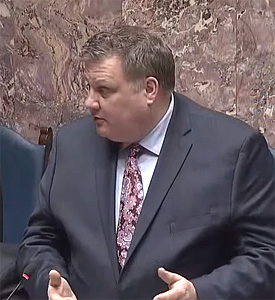
There are a lot of promises, but they’ve been delivered before, over five years, said the Official Opposition Finance Critic Peter Milobar in response to the budget today in the BC Legislature. A different between thought and action or deliverables, using housing as an example. Skyrocketing rents were highlights, evidently without “meaning, tangible steps”.
“The budget is trying to get back to balance on the back of property transfer increases,” it was stated. However, when the BC Liberals were in government they prominently rode high on robustly increasing property tax transfer increases.
“We need child care to get people to work,” it was stated by the Opposition as part of their accusation that child care is not being developed fast enough by the NDP government. That comes a bit rich as a criticism because it’s been the NDP government that had to hammer home that economic reality to the business community and BC Liberal opposition over the years.
“The most secretive government in Canada,” was the accusation from the Official Opposition today. Another accusation thrown across the legislature floor was that it’s been five years of worsening affordability including rent and housing.
[More to come]





